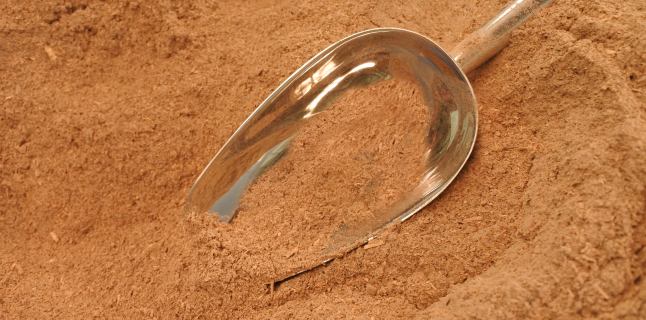Kava Kava - benefits, side effects and administration

Kava can be eaten as tea, powder, as a liquid or as a capsule supplement. With the exception of kava tea, these products are obtained from a concentrated mixture, prepared from the extraction of kavalactone from the root of the plant. Extraction is done with ethanol or acetol. Experts recommend that the daily dose should not exceed 250 mg of kavalactone. To be effective, a 70-250 mg dose is recommended. On the kava supplements package, you can list the active substance dose (kavalactone) in milligrams or percentage.
If the packaging indicates the percentage, you need to calculate the amount of active substance. For example, if a capsule contains 100 mg of kava root extract containing 30% standardized kavalactone extract, then one capsule contains 30 mg of active substance (kavalactone). To get an optimal amount, you should take three capsules / day of this supplement. Most kava supplements contain standardized extract of kavalactone in a proportion of 30-70%. Kava has proven anxiety benefits, but fears about the side effects of the plant are still under discussion.
At the beginning of 2000, several cases of kava consumption and an increased level of Kava were reported. Thus, the US Food and Drug Administration issued a warning about liver damage due to kava consumption. The use of this plant has been banned or restricted in several countries, including Germany, Austria, France, Canada and the UK. In Germany, after being banned, kava was put back on the market because there is no evidence to support the risk of kava consumption. It is believed that the plant affects the liver, especially when it is associated with certain drugs.
The liver metabolizes kava just as it metabolizes the drugs. Thus, kava consumption together with other liver overloads. The same enzymes that metabolize drugs also metabolize kava. Kava consumption during medication can block the metabolism of drugs in the liver. Another concern is the sale of counterfeit products.
To reduce costs, some companies use kava leaves or kava strains. These are harmful to the liver. Following the analysis of human kava studies, no evidence was found to indicate that the plant would have been harmful to the liver for participants who took short-term supplements or for a period of 1-24 weeks. In conclusion, people who do not have liver problems and are not under medical treatment can consume kava at recommended doses over a 1-2 month period. .
Source : sfatulmedicului.ro
Views : 3192
Popular Article
- (photo) Nude becomes art.
Posted: 2018-03-17, 9759 views.
- The harmful effects of air conditioning on the skin
Posted: 2017-06-08, 8469 views.
- 3 causes of dyed hair discoloration
Posted: 2017-06-15, 8350 views.
- Why early puberty occurs in girls: symptoms, favors, diagnosis and treatment
Posted: 2017-10-24, 8191 views.
- Good or bad skin treatments in the hot season
Posted: 2017-06-07, 7921 views.
Recommendations
- (photo) Nude becomes art.
Posted: 2018-03-17, 9759 views.
- The harmful effects of air conditioning on the skin
Posted: 2017-06-08, 8469 views.
- 3 causes of dyed hair discoloration
Posted: 2017-06-15, 8350 views.
- Good or bad skin treatments in the hot season
Posted: 2017-06-07, 7921 views.
- Risks of practicing sports on hot days
Posted: 2017-06-12, 7502 views.
 4 effective ingredients in the fight against acne.
4 effective ingredients in the fight against acne. How to get rid of hiccups fast
How to get rid of hiccups fast The wheat bran diet: the secret of lost pounds as if by magic
The wheat bran diet: the secret of lost pounds as if by magic The recipe that will sweeten your soul this weekend!
The recipe that will sweeten your soul this weekend!  Is it dangerous or not to refreeze meat after thawing it?
Is it dangerous or not to refreeze meat after thawing it?  The unusual sign of diabetes indicated by saliva.
The unusual sign of diabetes indicated by saliva. What to drink to boost your immune system.
What to drink to boost your immune system. 10 foods that help you never age.
10 foods that help you never age. What actually happens in your body if you drink a cup of coffee for breakfast
What actually happens in your body if you drink a cup of coffee for breakfast 5 surprising benefits of chia seeds
5 surprising benefits of chia seeds